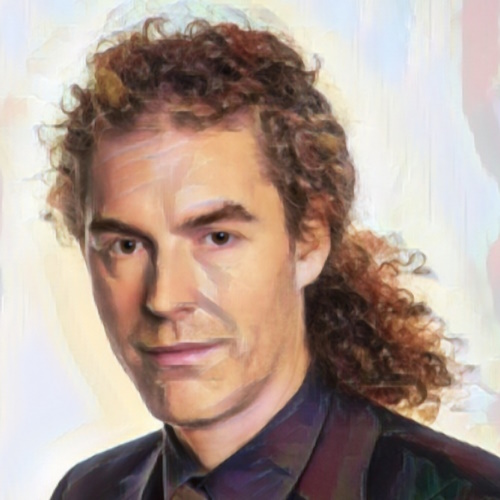Biological ageing remains a mystery despite decades of research. A recent study published in PNAS Nexus highlights a surprising lack of consensus among ageing researchers on the field's most fundamental questions. This survey, involving experts at the 2022 Systems Aging Gordon Research Conference, uncovers diverse opinions about the nature, causes, and implications of ageing, raising important questions for the future of research.
Elusive Nature of Ageing
The study's survey asked a simple yet profound question: What is ageing?
Responses varied widely. Some researchers described aging as the loss of function over time. Others focused on the accumulation of molecular damage or systemic changes. A significant proportion viewed aging as a multifactorial process, incorporating health decline, increased mortality, or shifts from an optimal state.
This diversity in definitions reveals a key challenge: without a unified understanding of ageing, researchers prioritise different experimental approaches. For example, while one scientist may focus on cellular-level damage, another might target broader organismal changes. This inconsistency complicates efforts to design targeted interventions.
Reason from Fight Ageing, aptly summarised the field's current state: “Researchers have produced an immense and growing body of data, but connecting these pieces together into a coherent map of cause and consequence remains a work in process, and will likely continue for decades yet.”
What Causes Ageing?
The question of why we age proved equally contentious. About 30% of respondents cited damage accumulation as the primary cause. Others mentioned systemic dysregulation, genetic factors, and even stochastic processes like entropy. Notably, a minority admitted uncertainty, acknowledging that we may not yet fully understand ageing's root causes.
This diversity in opinion underscores a critical gap in ageing research. Without agreement on what drives ageing, scientists struggle to develop cohesive strategies to slow or reverse its effects.
Rejuvenation: A Complex Concept
The idea of rejuvenation also sparked debate. Many respondents linked rejuvenation to the repair or reversal of damage, while others described it as a return to a younger state. Interestingly, only half as many researchers associated rejuvenation with functional gain as those who defined ageing as functional loss. This discrepancy highlights differing perspectives on whether rejuvenation is the opposite of ageing or a distinct process altogether.
Biggest Unanswered Questions
Survey participants identified numerous unanswered questions in ageing research. A third focused on defining ageing and rejuvenation, noting the lack of studies directly addressing these issues. Other key topics included longevity interventions, measuring biological age, and the mechanisms underlying age-related changes. These responses reveal a disconnect between the questions researchers deem most important and the areas currently receiving funding and attention.
When Does Ageing Begin?
Opinions on the onset of ageing were surprisingly varied. Some scientists pinpointed the start of ageing at conception or early development, while others chose milestones like puberty or peak physical performance. This range of perspectives reflects broader disagreements about the nature of ageing itself.
For instance, evolutionary biologists often link ageing to reduced natural selection after reproduction, while demographers focus on increasing mortality rates.
Is Ageing a Disease?
The question of whether ageing qualifies as a disease divided researchers. While some agreed, others emphasised that ageing, unlike diseases, is a universal process. This debate highlights the challenges of defining ageing within traditional biomedical frameworks. The answer could have profound implications for research funding and the development of anti-ageing therapies.
Should We Agree on a Definition?
Interestingly, the survey revealed mixed opinions on whether a consensus definition of ageing is essential. While some researchers argued that clear definitions could streamline research, others believed that diverse perspectives foster innovation. A few even suggested that rigid definitions might hinder progress by oversimplifying a complex process.
Future Lifespan Increases: Optimism vs. Skepticism
The survey also explored expectations for future lifespan increases. While some respondents were optimistic about adding 10 years or more to the average lifespan in developed countries, others expressed skepticism. These differing views reflect uncertainties about the feasibility of extending human longevity through scientific advancements.
Despite the lack of consensus, the survey revealed some common themes. Most researchers agree that ageing involves harmful changes, can be studied experimentally, and is theoretically modifiable. The distinction between biological and chronological age also garnered widespread support. These shared views could provide a foundation for more focused research efforts.
To move forward, the field must address its foundational disagreements. Researchers could benefit from more precise terminology, distinguishing between ageing's causes, consequences, and manifestations. Integrating mechanistic and evolutionary models of ageing may also help reconcile differing perspectives.
Conclusion
The survey's findings highlight the complexity of ageing as both a biological process and a research field. By embracing these challenges, scientists can refine their approaches and uncover new insights. Achieving even partial consensus on ageing's fundamental principles could pave the way for groundbreaking interventions, improving health and longevity for future generations.
The study is published in the journal PNAS Nexus. It was led by Vadim N Gladyshev from








